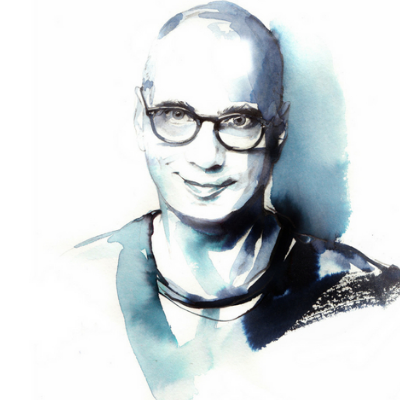Self-diagnosis with Dr. Google and Prof. Tiktok
Long before Google and TikTok, British author Jerome K. Jerome described the phenomenon of self-diagnosis. In his novel Three Men in a Boat (1889) , a young man immerses himself in a medical encyclopaedia and realises that he suffers from almost every disease listed in it.
A doctor examines him and writes a prescription. Perplexed, the pharmacist hands the note back to him. The prescription recommends beefsteak, exercise, early bedtimes – and the advice: «Don't fill your head with things you don't understand!»
Today, the internet has replaced health encyclopaedias. We have probably all had the experience of searching for certainty and finding uncertainty instead. Children and young people also consult the internet on health issues and come across useful, incorrect and disturbing recommendations.
The most important questions and answers:
Why do children go online for health questions?
Because it's easy. Sure, many parents would prefer their children to talk to them directly. They could help them distinguish between legitimate and unfounded concerns – or at least make an appointment with a doctor. But teenagers don't want that anymore. Their questions are sometimes so embarrassing that they don't want to confide in their parents or a doctor.
However, it is generally positive that young people are researching health topics online. Anonymity serves as a protective cloak for them. This is how the internet-savvy generation deals with things as soon as they begin to become aware of themselves, their bodies and the personal responsibility that comes with them.
Which health issues are important to you?
It is often about fitness and nutrition. Even for acute complaints, a quick look online can help. Above all, however, they can address sensitive taboo topics without being observed. This includes menstruation, questions about sexuality and contraception. Mental health also plays a major role: am I anxious – or do I already have an anxiety disorder? Am I sad or depressed? Google provides information that supports and reassures young people as they find their way in life. This includes medfluencers.
What are medfluencers?
Medfluencers are influencers who specialise in medical issues. They are generally considered trustworthy if their main profession is as a doctor, pharmacist, nurse, psychologist or therapist. It is an achievement when they use their in-depth knowledge to explain things in an understandable, entertaining and empathetic way. This service is not only aimed at children and young people. In addition, users can ask their own questions in the comments section.
Some children feel triggered by certain symptoms, while others suddenly claim to have disorders that they do not actually have.
The healthcare industry hopes that medfluencers will take some of the pressure off doctors' surgeries, as people will be able to find answers quickly and perhaps won't fill up waiting rooms in such large numbers. On the other hand, it is a major problem that many non-medical professionals also express their opinions on social media.
What negative impact does social media have?
The Süddeutsche Zeitung recently warned against ADHD diagnoses on TikTok. According to the article, American and Canadian scientists had 100 videos by psychologists analysed for a study. The unsurprising result: over half of the clips were classified as «misleading» or «incorrect».
With fatal consequences. We have known for a long time that extremely idealised body images on social media can lead to eating disorders and other problems in children. Some protagonists on the internet even fuel such issues. Others downplay serious conditions such as depression or self-harm or romanticise them as a hip lifestyle.
Some children also feel triggered by certain clinical pictures, while others suddenly claim to have disorders that they do not actually have. And anyone who has searched for such content will be offered it again and again in a vicious circle created by the algorithm.
What are the negative consequences?
Incorrect, contradictory or extremely alarming diagnoses can significantly increase anxiety and fear. After all, anyone searching for illnesses online is already feeling anxious. The risk of convincing yourself that you have an illness should not be underestimated. This has led to the emergence of a new term: cyberchondria, a portmanteau of «cyber» and «hypochondria».
In the digital age, health literacy cannot exist without media literacy.
When it comes to health issues in particular, self-proclaimed experts and unscrupulous fraudsters are running rampant on the internet. They promote questionable dietary supplements, medicines or miracle cures, such as the «tips» during the COVID-19 pandemic to drink disinfectants or chlorine bleach. And anyone researching «self-induced abortion» will find instructions that are completely irresponsible. Adults may be able to judge this, but a desperate 15-year-old pregnant girl is unlikely to be able to do so.
How can we strengthen children's digital health literacy?
«Health literacy,» writes the Federal Office of Public Health (FOPH), «is the ability to make decisions in daily life that have a positive impact on health.» In the digital age, health literacy cannot exist without media literacy. During puberty in particular, young people are eager for concrete answers to their pressing questions. Young people use the information that is useful to them. We should therefore equip them with the necessary tools to distinguish between sound advice and nonsense.
- Who is behind the account?
- Does the medfluencer have qualifications in medical topics?
- Are there reliable sources, studies or articles?
- Is someone trying to sell something sooner or later?
- Be wary of phrases such as «What doctors don't tell you».
- If something seems strange, look for the information on other sites.
- Pay attention to labels. YouTube Health marks verified channels with trustworthy health content.
- If you are unsure, talk to someone you trust.
- In an emergency, contact Pro Juventute or 147.ch.




